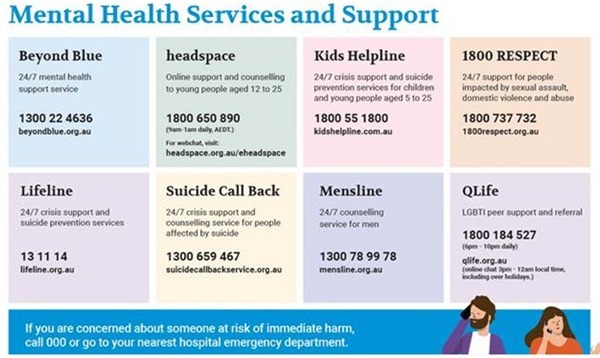Wellbeing News Update
Senior Secondary Guidance Officer – Steve Jones
Read the attached article for the latest information targeted to senior students of careers and pathway information.
https://pbc-shs.eq.edu.au/support-and-resources/guidance-officerSenior Secondary Guidance Officer Steve Jones (Email : sjone79@eq.edu.au)
Junior Secondary Guidance Officer - Anna Willis
The difference between good stress and the toxic kind
Toxic stress, on the other hand, wears down your stress response system in ways that have lasting effects, as psychiatrist and trauma expert Bessel van der Kolk explains in his bestselling book “The Body Keeps the Score.”
The earliest effects of toxic stress are often persistent symptoms such as headache, fatigue or abdominal pain that interfere with overall functioning. After months of initial symptoms, a full-blown illness with a life of its own – such as migraine headaches, asthma, diabetes or ulcerative colitis – may surface.
When we are healthy, our stress response systems are like an orchestra of organs that miraculously tune themselves and play in unison without our conscious effort – a process called self-regulation. But when we are sick, some parts of this orchestra struggle to regulate themselves, which causes a cascade of stress-related dysregulation that contributes to other conditions.
For instance, in the case of diabetes, the hormonal system struggles to regulate sugar. With obesity, the metabolic system has a difficult time regulating energy intake and consumption. With depression, the central nervous system develops an imbalance in its circuits and neurotransmitters that makes it difficult to regulate mood, thoughts and behaviours.
How stress affects your brain- Madhumita Murgia: https://www.youtube.com/watch?v=WuyPuH9ojCE&t=51
Recognising and managing stress and its associated conditions
The first step to managing stress is to recognise it and talk to your primary care clinician about it. The clinician may do an assessment involving a self-reported measure of stress.
The next step is treatment. Research shows that it is possible to retrain a dysregulated stress response system. This approach, called “lifestyle medicine”, focuses on improving health outcomes through changing high-risk health behaviours and adopting daily habits that help the stress response system self-regulate.
Adopting these lifestyle changes is not quick or easy, but it works (especially if consistently applied over a 9–12-month timeframe). Practicing personal regimens of stress management, diet and exercise in ways that build and sustain their new habits (i.e., such as meditation, deep breathing, walking, swimming, being aware of your surroundings).
There is now strong evidence that it is possible to treat toxic stress in ways that improve health outcomes for people with stress-related conditions. The next steps include finding ways to expand the recognition of toxic stress and, for those affected, to expand access to these new and effective approaches to treatment.
Lawson R. Wulsin, Professor of Psychiatry and Family Medicine, University of Cincinnati
Guidance Officer Anna Willis (Email : awill464@eq.edu.au)



